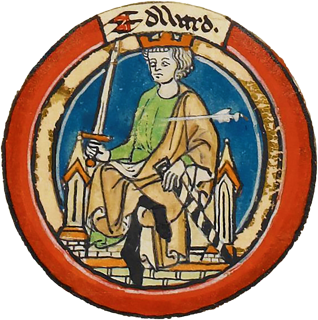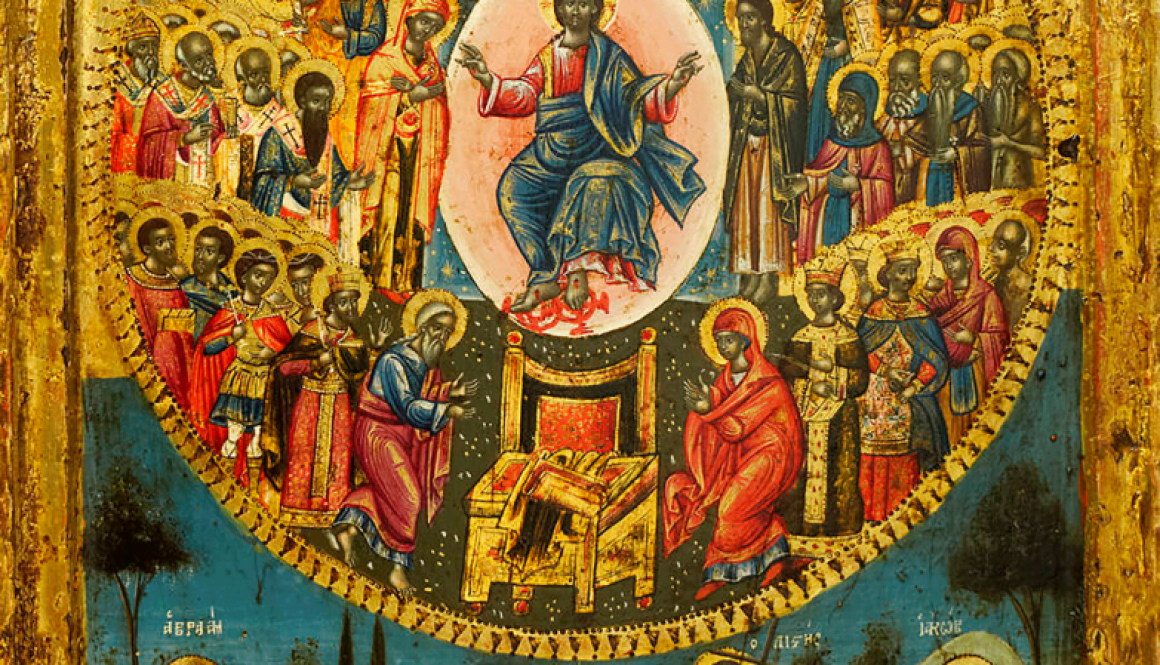All Saints: First after Pentecost
“Marvellous is God in his saints: bless ye God in the Congregation”. Those were the words proclaimed as the Prokeimenon this morning, the words that introduced the reading from the Apostle, and which vary from Sunday to Sunday. “Marvellous is God in his saints: bless ye God in the Congregation.” You can’t be Orthodox, and not take note of and venerate the Saints – from the Theotokos to those glorified in our own lifetimes. Today is All Saints Day.
The Apostle this morning was taken from the Epistle to the Hebrews. It is a quite well known passage, and remarkably appropriate for today. It outlines, from the perspective of the Church at the time of writing, (A.D. 70 at the latest) the faith, the witness, and the sufferings of the saints. It does so from the perspective of 30 – 40 years of persecution of varying intensity, and it is true that the majority of the saints during this period gave their lives as witnesses to their faith. They were martyrs, but there is also a recognition of the fact that there were those who in words, part of which inspired a sentence in the Anaphora of the Divine Liturgy of St Basil – familiar to us. “They went around in skins of sheep and goats, destitute, afflicted, ill-treated – of whom the world was not worthy – wandering over deserts and mountains, and in dens and caves of the earth.” These were the ascetics, those who gave up all in order to live lives of prayer as solitaries. We sometimes think of this way of life becoming popular when martyrdom was no longer likely, after the conversion of Contstantine. Perhaps at that point it became more popular, but as we see from this reading it goes back to the earliest Christian period.
So already here we find two of the traditional classes of saints – martyrs and ascetics. To these we could add a third – confessors. Confessor in this context means not someone who hears confessions, but someone who, by his or her life, bears extraordinary and steadfast witness to the Christian faith, but is not called upon to die for it. An example of a confessor would be St John the Apostle – the only one of the Twelve to die in his bed at the end of a long life.
Just as a footnote, and perhaps un-necessarily, I should say that martyrdom did not begin with Christianity. We find it in the Old Testament too. Many died as witnesses to their faith as Jews during the Maccabean period of the 2nd cent. B.C. There is the well known example of the mother who was forced to witness the cruel deaths of each of her sons, and encouraged them in their suffering with the hope of Resurrection, before herself suffering the same fate.
It is probably true to say that never at any time during the past two millennia has the likelihood of martyrdom for Christ been absent somewhere or other in the world. I think that we can also say that the die was cast when the Lord himself was nailed to a cross. We think in terms of the “passion” – the suffering of the Lord. We sometimes use the same word, “passion” of the suffering of the saints who died with the image of the cross, the suffering of their Lord in their hearts to give them strength, and the hope of the resurrection, as the Lord himself had been raised.
The number of those who died for Christ is unknown. It is obviously possible to arrive at some kind of a total by collating all the calendars of saints, but at least as many have been forgotten as we can find by this means. Numbers are not important, and even if they have been forgotten on earth, every one of them is known to God. However, one thing is pretty certain, and it is a statistic that I have quoted before, more died as martyrs in the 20th century, mainly in Russia after 1918, than in the previous 19. In Russia, there was a systematic attempt to destroy the Church, by the arrest and execution of its clergy and others or, as an alternative, send them to the gulags where it was likely that they would suffer a lingering death from hard labour, starvation, and the extreme Siberian cold.
Even today, in our supposedly enlightened world Christians are persecuted. In Muslim countries it has always been a possibility, and we have seen instances of it recently in Egypt. In Iraq, the Christian population has plummeted from what it was only twenty or so years ago – not by the martyrdom of large numbers, but by a culture of fear causing those able to do so to emigrate. Eastern churches that have been a part of the scene for at least eighteen centuries in the Middle East are dying, or transplanting to other parts of the world.
So what about our “tolerant” society here in the West. It remains unlikely that anyone here will suffer martyrdom, but there are more subtle forms of persecution. In general we only hear of cases that come to court, but just to take one example, what about the wearing of crosses at work, or placing palm crosses in a taxi? Probably most people would receive a warning and conform, but there are some who do stand out and take an employer to court to challenge their dismissal – and usually they seem to lose their cases. The is also the political correctness that would abolish Christmas, and make school nativity plays unrecognisable to an earlier generation. But what of the other side? It seems to many, and possibly rightly, that our minorities are free to wear and carry items which distinguish them – the Sikh with his turban, the Muslim women with their veils with very little challenge.
“The blood of the Martyrs is the seed of the Church”. Some kind of witness is necessary, even in the face of ridicule. During the first three centuries many died, but still more came forward until it became quite clear that these methods were useless. It was then that Constantine adopted Christianity, on the basis that it was better to have the God of the Christians with him than against him. The Chi-rho sign, which the emperor saw in a vision was carried on Roman shields and standards, and those who had suffered under the last great persecution not long before came out, or were released from their labours in the mines.
Constantine despatched his mother to the Holy Land to identify the Holy Sites, and to build churches. The emperor himself built churches in Rome in honour of the Apostles Peter and Paul. He moved the capital of the empire to a very minor city on the banks of the Bosphorus, and Byzantium became Constantinople – from the start a Christian City.
There were many mistakes, and we might question the “Christian-ness” of the immediate outcome, but this was the beginning of a new world order.
So where does this leave us? “Since we are surrounded by so great a cloud of witnesses, let us also lay aside every weight and sin which clings so closely, and let us run with perseverance the race that is set before us, looking to Jesus, the pioneer and perfection of our faith.”

